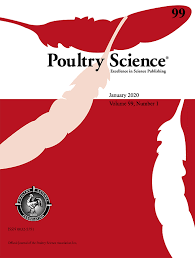Document type : Article published on the Web-Agri website
Author: Céline Clément
Preview: Although the European Union is increasingly concerned about animal welfare, Sweden remains a pioneer in this field. After all, it was in this country that the first animal protection society was founded over 120 years ago. "It's a fundamental matter for us, it's part of our culture," confirms Annette, a farmer. But we shouldn't assume that the "happiness" of her dairy cows is at the expense of productivity or profitability, as our European tour shows. [...] Annette's farm - key facts:
Employees: Annette + her husband + 5 paid employees (3 on the farm)
UAA : 300 ha of wheat, rye, oats and barley (they only own 17 ha because land costs 30 000 €/ha to buy, but 100 €/ha to rent)
Livestock: 130 dairy cows (Holstein, Holstein x Swedish and breeding x Montbéliarde)
Production: 10 500 l/animal/year (VG: 42 and TP: 34)
Animals farmed outdoors to keep them "happy"
This is a concern that the Swedes have long raised with Brussels and which has led to changes in the regulations and practices in other Member States. For Annette and most of her fellow farmers, "animal welfare is a fundamental matter", especially in parts of the world such as this where temperatures vary "between -5 and -10°C in winter" [...]
"Animals to the slaughter in the name of planetary balance"
"Much as I love my cows and the milk they produce, I also love eating them and I even love knowing which of them is on my plate, because I know she has been happy all her life. So sending them to slaughter is not a problem. It's part of the global balance to keep people fed," the farmer tells us. The only animal who will always remain on the farm is Molly, her 40th birthday present! Annette raises her animals to supply milk and meat for consumption, operating in a very real world that is far distant from from that of the "Care Bears", and where productivity and profitability are key.
And if she and her husband have gone organic, it is because "it is a good fit with the way they think" and "brings in 10 cents more per litre of milk". 85% of their production goes to the large Swedish-Danish cooperative Arla and 15% is sold directly to consumers (fresh milk and milk-based products): some in two grocery shops in Stockholm, 60 km away (bringing in €1.14/l), and the rest in a self-service shop on the farm, equipped with a fresh milk dispenser. "There is no need for a cashier, the customers leave the money in a tin can and there has never been any theft", say the couple, soon be joined by their two sons, who feel as strongly as they do ...






